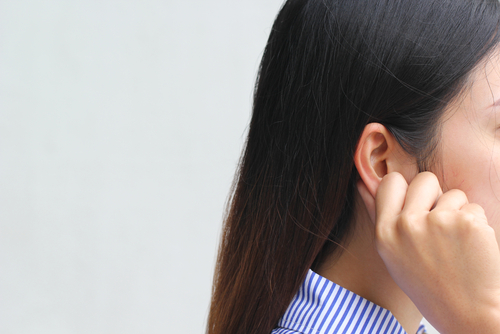
Helen Keller once famously said: “Blindness cuts us off from things, but deafness cuts us off from people.” Hearing is one of our most important senses—it allows us to connect with the world and communicate with those around us. Oftentimes, we do not realize how crucial our hearing is in everyday life until it becomes affected.
Hearing loss can impact anyone from newborns to the elderly. Nearly 48 million people in the U.S. have difficult hearing in one or both ears—making it far more common than diabetes or cancer.
Thankfully, there are many options available today to treat hearing loss. New advancements in hearing aids and implantable auditory devices are making it easier for both children and adults who have trouble with their hearing to lead happier, healthier lives.
Why is hearing important?
Hearing serves many essential functions. Most importantly, it is the primary way we communicate with other people at home, work, and school. Our ability to recognize different sounds also serves an important safety function. For example, we recognize danger by hearing a car horn beep or a fire alarm blare.
In children, hearing is critical for learning, development, and socialization. A toddler begins to understand and say words by listening to the sounds and conversations around them. Young children who have significant speech delays may have undiagnosed pediatric hearing loss.
How does hearing loss happen?
There are several causes of hearing loss. Some of the most common include:
- Age-related hearing loss usually develops gradually over time. Nearly one-third of people between ages 65 and 74; and half of adults over 75 years-old have some type of hearing loss.
- Genetics is the culprit for between 50 and 60 percent of infants with hearing loss. There is also a tendency for age-related hearing loss to run in families.
- Injury or illness can affect the hearing nerves and structures inside the ear. Damage can be caused by chronic ear infections, tumors, a ruptured eardrum, or even the gradual build-up of ear wax.
- Noise-induced hearing loss is a result of prolonged exposure to excessive noise at work, concerts, or even bars and restaurants. Repeated exposure to high decibels of sound can impact how you hear later in life. Nearly half of young people listen to music and TV too loud according to the Centers for Disease Control and Prevention.
What are symptoms of hearing loss?
- Difficulty understanding conversations, particularly when there is background noise
- Mumbling or slurring when speaking
- Trouble hearing high-pitched noises
- Feeling bothered by loud noises
- Ringing or buzzing sensation in one or both ears
Why is good hearing essential for physical and emotional well-being?
Hearing affects both our physical and mental health. Research shows that adults with hearing loss are more likely to become depressed and feel isolated. Individuals with hearing difficulties often experience social challenges as well. They may be nervous to attend events with background noise or avoid gatherings because they are embarrassed or frustrated. Sometimes elderly patients with hearing loss report being mistaken as uncooperative or confused.
How can you protect your ears?
Hearing loss is often gradual. The effects of noise exposure, for example, can build over time. Here are several ways you can keep your ears healthy.
- Turn the volume down when listening to music or TV (especially when using headphones or earbuds).
- Wear earplugs at loud concerts or sporting events.
- Do not overuse medication like Aspirin or nonsteroidal anti-inflammatory drugs. Certain drugs have a toxic effect on the ear structures or nerves.
- Dry your ears after swimming—shake excess water out of the ear canal or use ear drying products.
- Avoid using cotton swabs to clean out earwax.
Do you have concerns about your hearing?
Take this Five Minute Hearing Test from the American Academy of Otolaryngology-Head & Neck Surgery. If the score suggests your hearing should be checked, call Summit Health Audiology to schedule an appointment. Our audiologists will conduct a comprehensive evaluation and help connect you with the right resources.
Berkeley Heights: 908-277-8868
Clifton: 973-470-0282
Florham Park: 973-404-9890
Livingston: 973-436-1480
Nutley: 973-235-0090
Riverdale: 973-831-1220
Rutherford: 201-935-5508
Westfield: 908-389-6366

